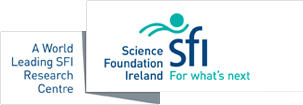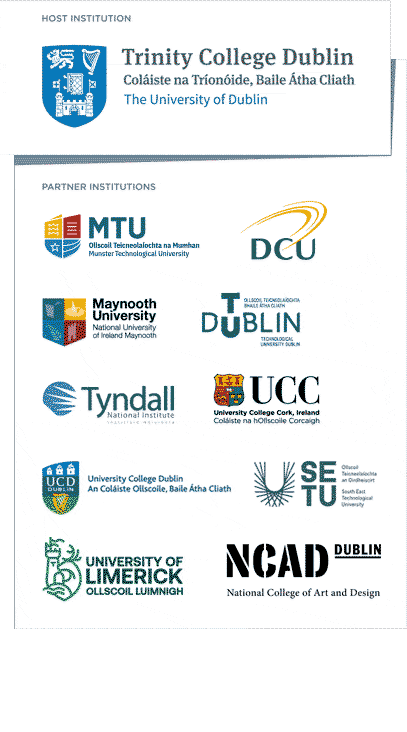CONNECT researchers will be leading a series of workshops at ICC 2020 in Dublin, 7 – 11 June 2020. ICC is one of IEEE’s flagship communication conferences.
Blockchain Technology and Smart Contracts in 5G and Beyond Networks
Hamed Ahmadi, Irene Macaluso, Marco Ruffini, Nima Afraz
The Business ecosystem in Telecom industry is undergoing an evolution which introduces more sophisticated and highly frequent processes such as financial transactions and sensitive intelligence sharing which conventional manual negotiation-based systems are incapable of handling. These are not limited to financial Blockchain technology facilitates the automation of business processes and provides collaboration incentives in enterprise ecosystems. This is done through eliminating the need for a third-party authority to overlook the transactions with a collaborative consensus protocol which enhances the system with security, transparency and fault/manipulation tolerance. In this tutorial, we will explain how blockchain technology will enable the industry to upgrade its business process management to accommodate the requirements for the 5G and beyond networks.
Online Learning for Data Caching and Network Service Delivery
George Iosifidis, Apostolos Destounis, Georgios Paschos
Storage resources and caching techniques permeate almost every facet of wired and wireless networks. From storage-assisted future Internet architectures and cache-enabled 5G systems, to modern analytic services that rely on memory-demanding ML/AI models, caching promises to benefit both the network operators by reducing their expenditures, and the end-users by improving the offered services. In light of the pressing data traffic growth, the increasing number of rich-media services, and the fast emergence of mobile analytic applications, the following question is inevitably raised:
Can we leverage online learning for maximizing the benefits of storage resources and optimizing the performance of services in modern communication systems?
In this tutorial we will start with a brief historical background on caching and will accordingly explain why caching is instrumental for modern network services and user applications beyond content delivery. We will present, in a novel and unified fashion, fundamental concepts of popularity request models and network graphs, with examples and pointers to real datasets and deployed systems. We will then shift our attention to the basic theory of online learning that has recently taken over the machine learning literature, and explain the key notions and tools that a network/communications researcher needs to know. A series of recent results that apply online learning in wireless edge caching/routing and device-to-device caching will be presented, showing evidence that this powerful analytical tool can address shortcomings of previous optimization approaches. Accordingly, we will discuss online learning techniques for deploying other network services (single-stage or chained functions), placing emphasis on minimizing their costs and reconfiguration delays in dynamic environments with unknown and unpredictable requests. This tutorial will conclude with a series of open questions at the nexus of online learning and deployment of network services and caching.
Mixed Numerologies and Flexible Waveforms: Enablers for Multi-Service Communications
Behrouz Farhang-Boroujeny, Arman Farhang, Lei Zhang
Customized physical layer design and efficient resource allocation, as enablers for the future multi-service wireless communication systems, are among the main motivations for this tutorial. This tutorial will provide an overview of the advances in waveform design of wireless networks during the last decade, while covering the new trends in the design of these networks. According to the recent standardization activities, orthogonal frequency division multiplexing (OFDM) with mixed symbol/subcarrier spacing (i.e., mixed numerologies) will be deployed to serve multi-service ecosystem in 5G networks. Accordingly, a wide set of use-cases are accommodated by an infrastructure at different frequency bands or time slots, e.g., those from delay-tolerant to latency-critical systems such as massive machine type communications (mMTC) and ultra-reliable low-latency communications (URLLC), respectively. However, cohabitation of the individually optimized services in one system leads to technical challenges to both physical and multiple access control layers of the overall system, such as optimal waveform design, inter-numerology interference analysis and cancelation, resource allocation, etc. This tutorial will cover all these aspects while discussing the emerging candidate technologies that can address the requirements of future wireless networks
CONNECT is the world leading Science Foundation Ireland Research Centre for Future Networks and Communications. CONNECT is funded under the Science Foundation Ireland Research Centres Programme and is co-funded under the European Regional Development Fund. We engage with over 35 companies including large multinationals, SMEs and start-ups. CONNECT brings together world-class expertise from ten Irish academic institutes to create a one-stop-shop for telecommunications research, development and innovation.


